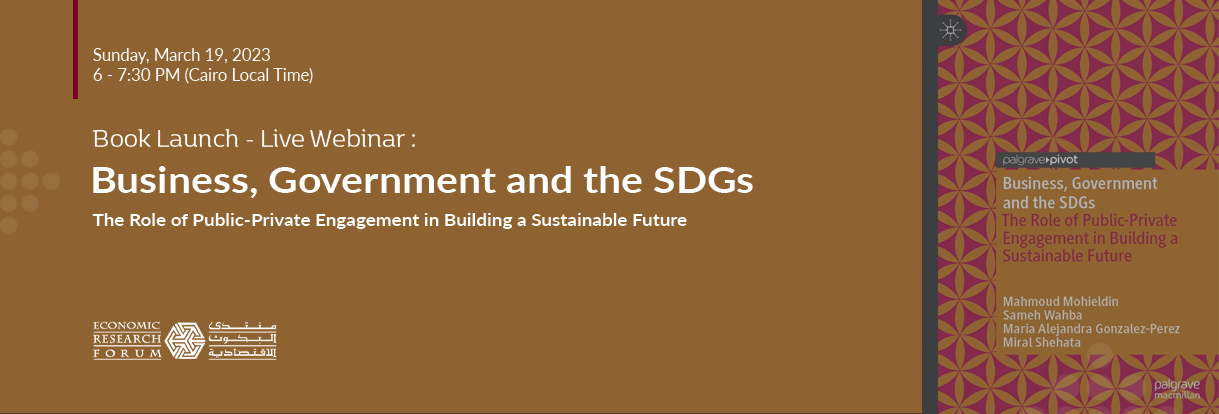Book Launch – Live Webinar: Business, Government and the SDGs: The Role of Public-Private Engagement in Building a Sustainable Future
ERF is pleased to organized a live webinar for the book launch on: Business, Government and the SDGs: The Role of Public-Private Engagement in Building a Sustainable Future, by Mahmoud Mohieldin, Sameh Wahba, Maria Alejandra Gonzalez-Perez, Miral Shehata. Published by: Palgrave Macmillan.
About the Book:
Business, Government and the SDGs: The Role of Public-Private Engagement in Building a Sustainable Future aims to analyze and challenge the roles and traditional realms of influence of national and local governments, and businesses at a critical juncture in terms of achieving sustainable development, faces when tackling the dual challenges of climate change and post-COVID recovery. It establishes by evidence the necessity of adopting a holistic approach to sustainable development, as reflected in the 2030 UN Sustainable Development Goals (SDGs), that realizes that bold climate action should come within the broader lens of sustainability. It offers arguments, case studies, and examples to showcase that neither national or local governments, nor companies, could afford to deviate from the SDGs in the recovery from the current crisis. The analysis frames the debate of how a balance between people, planet, and profits can be achieved and how nations, regions and cities, and businesses, with their representative organizations, can achieve a sustainable recovery from the current global crisis, and contribute to climate smart, resilient and inclusive development.






